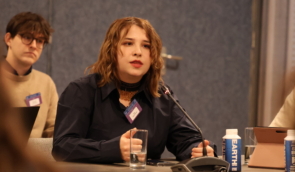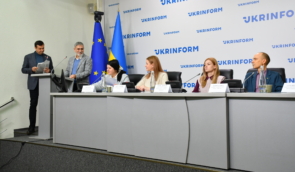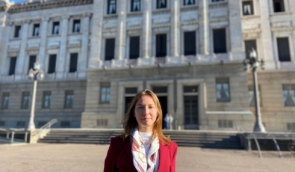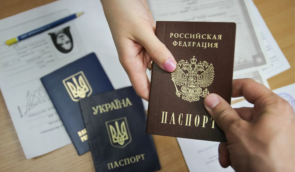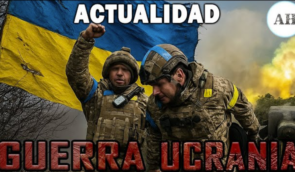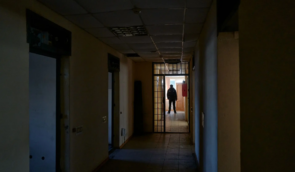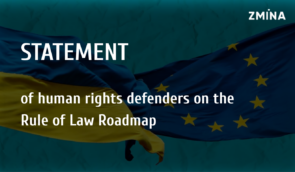Tetiana Pechonchyk speaks at meeting of Committee of Ministers of Council of Europe: responsibility for international crimes
On July 10, the Rapporteur Group on Legal Co-operation of the Committee of Ministers of the Council of Europe held a meeting with representatives of civil society on the topic “Responsibility for international crimes committed in Ukraine: the current state and the way forward”. Tetiana Pechonchyk, Head of Human Rights Centre ZMINA, delivered a speech at the meeting.
 Photo: Tetiana Pechonchyk at the meeting of the Committee of Ministers of Council of Europe
Photo: Tetiana Pechonchyk at the meeting of the Committee of Ministers of Council of Europe“The day before yesterday, we passed another difficult milestone – 500 days of the Russian Federation’s full-scale invasion of Ukraine. But we must not forget that Russia started aggression against Ukraine, invasion and occupation of Crimea and Donbas in 2014, and that today is not the 502nd, but the 3428th day of the war,” Tetiana Pechonchyk stressed, “ZMINA works as part of the Ukraine 5AM Coalition to protect the victims of Russian armed aggression in Ukraine and to bring to justice the top leadership of the Russian Federation and the direct perpetrators of war crimes and crimes against humanity. We collect evidence of extrajudicial executions, enforced disappearances, torture, deportations and other horrific crimes.”
According to her, the Prosecutor General’s Office of Ukraine has registered more than 94,000 criminal proceedings on the facts of alleged war crimes committed during the full-scale Russian armed aggression against Ukraine. This number is constantly increasing, because the war continues. The main burden in investigating and prosecuting international crimes fell on the Ukrainian law enforcement and judicial system which revealed many gaps.
In particular, Ukraine still has not brought its criminal legislation in line with the requirements of international law, the state lacks professional training, as well as the general capacity of the justice system to investigate the most serious crimes, there is no system of witness and victim protection.
Pechonchyk noted that given this, it is important for Ukraine to focus on several main steps:
- Bring national legislation into line with international criminal law and international humanitarian law
- Ratify the Rome Statute of the International Criminal Court
- Ensure the systematic training of personnel and conduct advanced training programs for investigators, prosecutors and judges
- Form a professional discourse on the model of a special justice mechanism
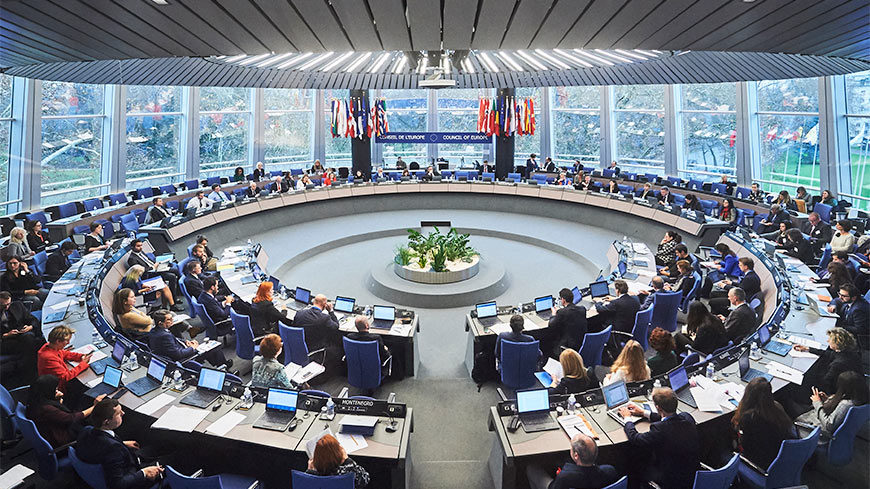 Photo: Committee of Ministers of the Council of Europe
Photo: Committee of Ministers of the Council of EuropeThe head of ZMINA also pointed out the importance of the work of international mechanisms and welcomed the decision of the International Criminal Court regarding the arrest warrants for Vladimir Putin and Maria Lvova-Belova for the illegal deportation of Ukrainian children. Pechonchyk noted that the deportation of children from Ukraine to Russia has signs not only of a war crime, as the International Criminal Court currently classifies it, but also of genocide — in terms of the forcible transfer of children from one national group to another.
In addition, while documenting torture and enforced disappearances, ZMINA found evidence of Russians committing crimes against humanity in the territory of Ukraine. “We came to a conclusion about their repetition, wide-scale and systematic nature,” Pechonchyk said.
Pechonchyk also called for the creation of a special tribunal for the crime of aggression: currently, the International Criminal Court has limited jurisdiction over the crime of aggression by the Russian Federation against Ukraine, but bringing to justice the criminals responsible for Russia’s attack on Ukraine is critically important not only in the context of this war but also for work with its causes.
“Sustainable peace in Ukraine and on the entire European continent cannot be achieved without justice. The lack of justice is the cause of this war, in which tens of thousands of Ukrainians have already died. In the name of their memory, as well as to prevent a new big war in Europe and new victims, we must do everything possible and impossible so that justice wins,” Pechonchyk ended her speech.
Representatives of the Center for Civil Liberties, the Coalition for the International Criminal Court, the Parliamentarians for Global Action network, Human Rights Watch, and Amnesty International also joined the meeting.
Background: The Committee of Ministers is the Council of Europe’s decision-making body, which consists of the ministers of foreign affairs of the member states or their permanent representatives. The Rapporteur Group on Legal Co-operation of the Committee of Ministers initiated a meeting with civil society in view of the Reykjavik Declaration adopted at the fourth summit of the Council of Europe. The declaration underscores to the need to hold those guilty of genocide, crimes against humanity, war crimes, and the crime of Russian aggression against Ukraine to account.
If you have found a spelling error, please, notify us by selecting that text and pressing Ctrl+Enter.


